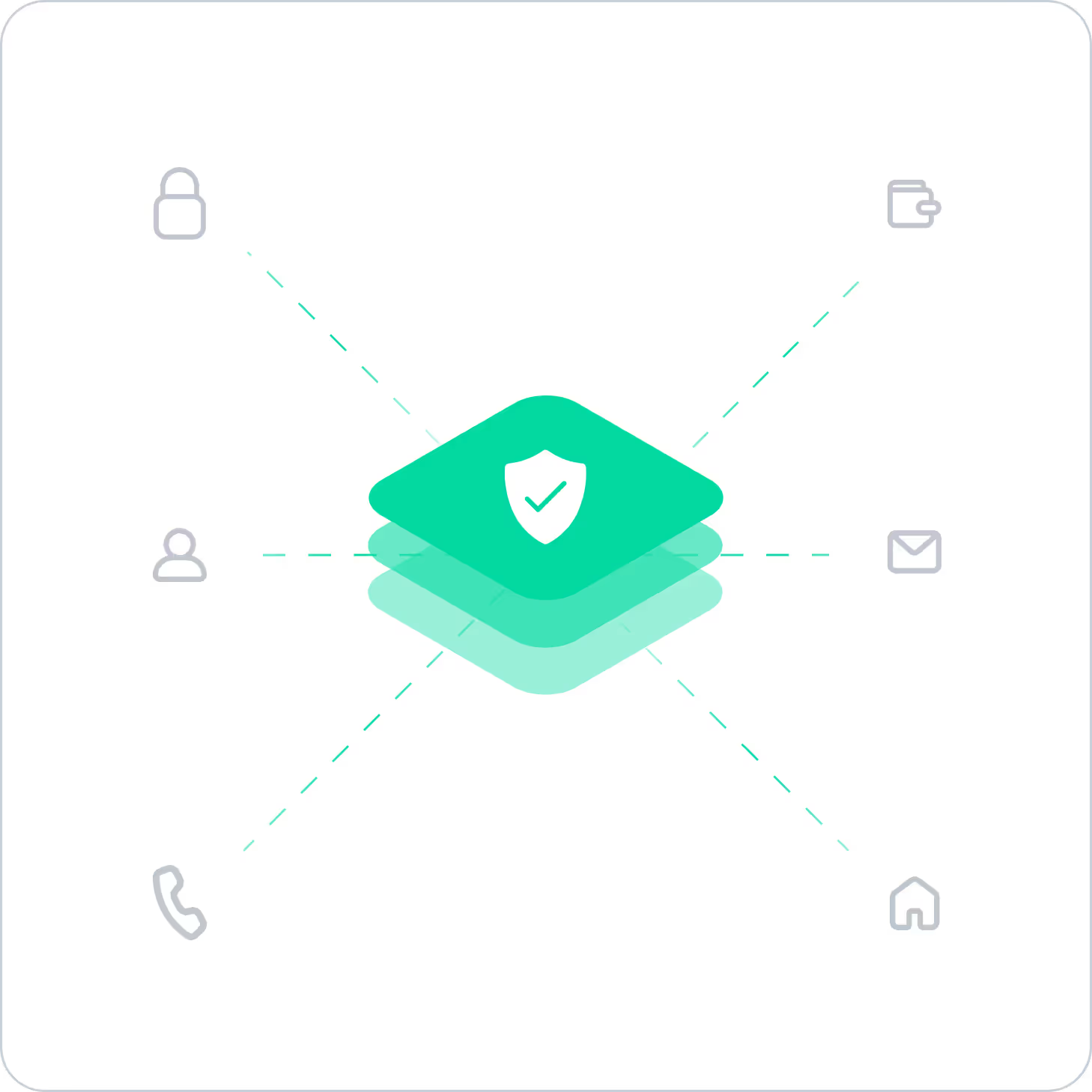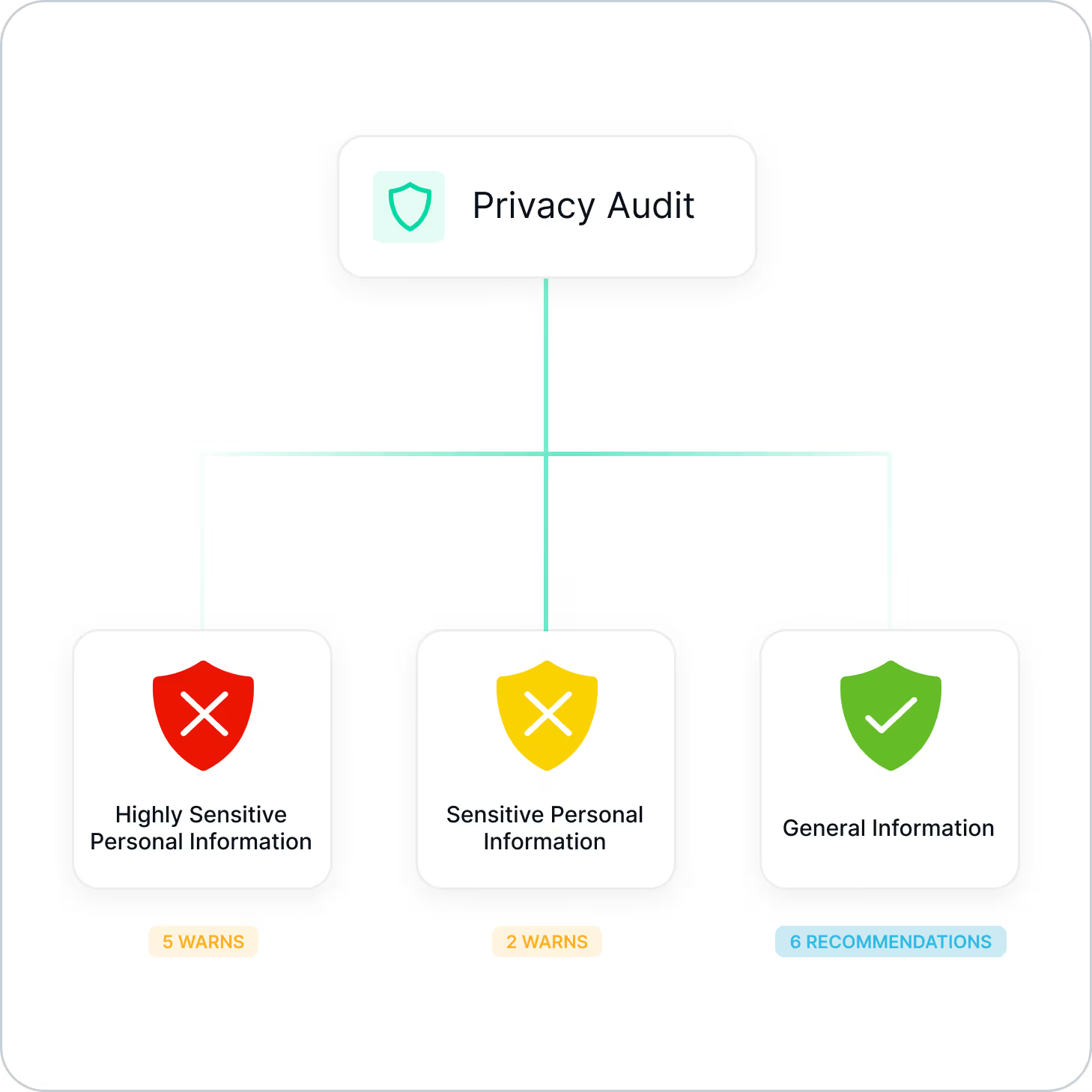















































The Trackingplan SDK only inspects the network requests that your site or app already sends to third‑party vendors (e.g., Google Analytics, HubSpot, Mixpanel, Google Ads), and forwards to our backend only the events required for anomaly detection, already anonymized on-device.
These requests are parsed locally in the browser or app, where anonymization and masking are applied as configured. Only the processed, non-identifiable event data is transmitted to Trackingplan’s servers. Once received, events are parsed, modeled, and continuously monitored to detect anomalies that may indicate implementation issues, whether in your own tracking or introduced by third-party tools. Through our web interface, teams can explore the detected schema, review alerts, and inspect sample events to debug tracking errors with full visibility and control.
Additionally, we do not introduce new identifiers, nor store IP addresses or fingerprinting data, as these are stripped before processing.
For a complete overview of our privacy and security measures, please visit our Privacy & Security documentation.
At Trackingplan, we are committed to full transparency in how we handle data and protect user privacy. Our platform is designed with privacy, security, and compliance at its core, ensuring that our clients maintain complete control over their data while meeting the strictest privacy regulations.
The Trackingplan SDK only observes the network requests your site or app already sends to third-party services—such as Google Analytics, HubSpot, Mixpanel, or Google Ads. These requests are parsed locally within the user’s browser or mobile app, where any necessary anonymization or masking is applied according to your configuration. Only processed, anonymized events—never raw or identifiable data—are forwarded to Trackingplan’s backend, strictly for anomaly detection purposes.
Client data remains fully encrypted and logically isolated at all times. Our infrastructure runs on hardened AWS PaaS services, with encryption enforced both in transit and at rest. Fine-grained IAM roles and resource-level permissions ensure strict access control, while all customer data is automatically deleted after 90 days by default.
Security is not just technical—it’s built into our processes. Every code change is peer-reviewed and deployed via CI/CD pipelines. Our team enforces two-factor authentication (2FA), maintains detailed audit logs, and ensures 24/7 system monitoring with on-call coverage to guarantee availability. GDPR principles are embedded into our design, and we offer optional Data Processing Agreements (DPAs) to support legal and regulatory compliance.
Through Trackingplan’s web interface, clients can inspect data schemas, review alerts, and analyze sample events in real time—empowering teams to debug implementation issues and safeguard data quality, without ever compromising user privacy.
For a complete overview of our privacy and security measures, please visit our Privacy & Security documentation.
No. The Trackingplan installation script is specifically engineered to be lightweight, non-intrusive, and secure—comparable to those used by trusted observability tools like Datadog and Sentry. At under 10KB, it loads asynchronously and does not block or delay the execution of any existing page elements or scripts.
The script is served directly as source code to eliminate the risk of unauthorized changes. It has been thoroughly reviewed by some of the most security-conscious clients in the industry, including data-driven organizations and privacy-focused teams. For companies that require additional assurance, we offer access to the decompiled version of the script under a signed non-disclosure agreement (NDA).
Designed with privacy and performance in mind, the script works only on declared endpoints—intercepting requests to third-party vendor domains that you’ve explicitly selected for monitoring. It performs anonymization and masking locally within the browser or app, without relying on external dependencies or introducing new cookies, storage mechanisms, or cross-site tracking.
Trackingplan's script never collects more data than your site or app already sends to analytics providers. It simply observes outgoing requests and ensures that only anonymized, relevant data needed for anomaly detection reaches our backend—without interfering with your application or compromising user privacy.
For a complete overview of our privacy and security measures, please visit our Privacy & Security documentation.
Trackingplan infrastructure runs exclusively on AWS PaaS in customer‑selected regions:
All endpoints are protected via AWS WAF, TLS 1.2+ encryption, and AES‑256 at rest.
For a complete overview of our privacy and security measures, please visit our Privacy & Security documentation.
No, Trackingplan does not store or collect any personal data.
We are fully committed to respecting user privacy and maintaining compliance with global privacy regulations such as GDPR, CCPA, and HIPAA. Trackingplan only observes the data your site or app is already sending to analytics or marketing tools—and only for the purpose of monitoring tracking quality and detecting implementation issues.
Here’s how Trackingplan handles identifiers and user data:
In short: Trackingplan never introduces new tracking mechanisms, never stores personal data, and never builds user profiles. We act only as a passive observer of the data you're already sending to your vendors, with strict safeguards in place to prevent access to personally identifiable information (PII).
If you have questions about how Trackingplan handles data privacy or want to review the decompiled script under NDA, please contact our support team. For a complete overview of our privacy and security measures, please visit our Privacy & Security documentation.